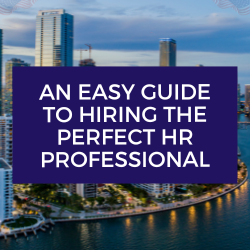Adapting HR Strategies for a Multi-Generational Workforce
October 23rd 2024 | Posted by Jo Thompson
Today’s workforce spans multiple generations, from Baby Boomers and Gen X to Millennials and Gen Z, each bringing unique expectations, work habits, and skill sets, therefore, adapting HR strategies for a multi-generational workforce is crucial.
Here’s how HR professionals across the U.S. are balancing business objectives with employee satisfaction by implementing flexible work policies, customized benefits, and inclusive workplace initiatives.
1. Embracing Flexible Work Arrangements
Generational perspectives on workplace flexibility vary. Baby Boomers and Gen X often appreciate structured schedules but welcome some degree of flexibility, while Millennials and Gen Z view hybrid and remote work options as essential.
🔹 Learn how hybrid work models impact employee engagement (SHRM)
By offering flexible work arrangements, HR leaders can enhance job satisfaction, boost productivity, and reduce turnover.
2. Personalized Learning and Development Programs
HR professionals recognize that different generations prefer different learning methods. While younger employees favor digital learning and online training, older employees often value in-person workshops and mentoring.
🔹 Explore best practices for multi-generational training (Association for Talent Development)
A blended learning approach that includes e-learning platforms, virtual training, and traditional mentorship programs ensures employees across all age groups can grow professionally.
3. Multi-Channel Communication Strategies
Communication preferences differ across generations. Boomers and Gen X are accustomed to email and in-person meetings, while Millennials and Gen Z prefer instant messaging, video calls, and collaboration tools like Slack and Microsoft Teams.
🔹 Learn more about effective workplace communication across generations (Harvard Business Review)
HR leaders should implement diverse communication channels to encourage seamless interaction and knowledge sharing.
4. Tailoring Employee Benefits to Meet Generational Needs
The ideal employee benefits package looks different for each generation:
✔️ Baby Boomers and Gen X prioritize healthcare benefits, retirement planning, and long-term financial security.
✔️ Millennials and Gen Z seek mental health resources, student loan assistance, and career development opportunities.
🔹 Discover customizable employee benefits strategies (SHRM)
Offering customizable employee benefits packages ensures all employees receive relevant support.
5. Implementing Cross-Generational Mentoring Programs
Mentorship fosters engagement and knowledge-sharing.
✔️ Traditional mentoring helps younger employees gain career insights.
✔️ Reverse mentoring enables senior employees to stay updated on emerging workplace trends and new technology.
🔹 Read about reverse mentoring in action (Harvard Business Review)
A structured mentorship program enhances collaboration, innovation, and cross-generational learning.
6. Creating an Inclusive and Respectful Workplace Culture
Each generation brings distinct values, motivations, and work styles.
✔️ Older employees value stability and long-term career growth
✔️ Younger employees prioritize innovation, purpose-driven work, and career mobility
HR leaders must cultivate an inclusive work culture by providing open communication channels, Employee Resource Groups (ERGs), and diversity training programs.
🔹 Learn more about creating an inclusive workplace (Harvard Business Review)
7. Leveraging Technology for Workplace Integration
Technology is a powerful tool for bridging generational gaps.
🔹 How project management software improves team collaboration
🔹 The role of AI in workplace efficiency
HR leaders should provide training and tech support to ensure all employees can effectively use workplace technology.
By adopting multi-generational HR strategies, businesses can build a workplace that embraces diversity, fosters collaboration, and drives long-term engagement.
✔️ Top strategies for workforce retention
✔️ How generational diversity boosts business success
Creating a workforce that values every generation’s strengths leads to higher productivity, stronger retention, and greater business success.





